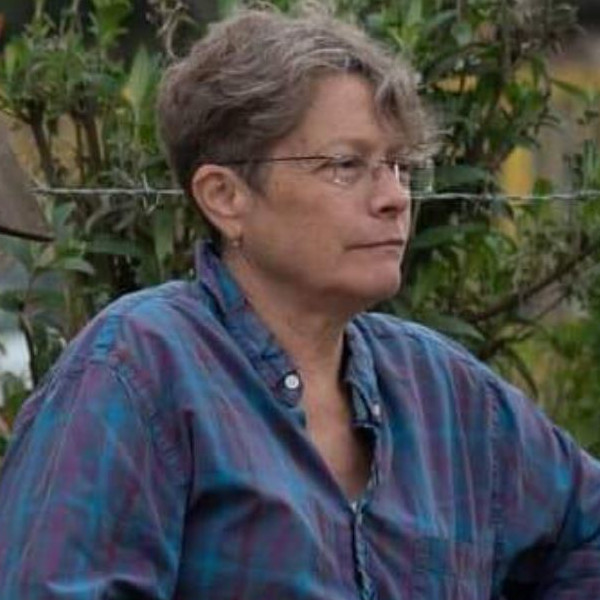Interviews with Olim
Each month, we interview an oleh or olah for our newsletter.
We invite you to read the stories of LGBTQ+ people who have made Israel their home.
"Making Aliyah was the single best decision I ever made."
Interview date: March 2016
Updated: August 2022. Scroll down for update.
Q. Where were you born and where did you grow up?
A. Born in Montreal, Canada but moved to Toronto early on to attend the National Ballet School as a boarding student.
Q. At what age did you come out? And how did it go?
A. Officially in my 30’s and it came with some consequences – a divorce, a major shake-up for my two kids, being the brunt of the rumor mill in my community but other than that I came out unscathed. It took a few years but things did work out wonderfully – it does get better!
I am happily married to my partner, Nurit. My kids have grown up and are amazing individuals, my community has moved on to gossip on other issues and life is sweet.
Q. Were you involved at all in the LGBT community back home?
A. Before I made Aliyah I briefly checked out the Toronto community, but was really more into feminist activism (that is where all the Lesbians were anyway!).
Q. What is your involvement (if any) in the LGBT community in Israel?
A. In the early years, I was very involved – we had an organization named CLAF and I volunteered with Haifa/north activities, conferences etc. A few years ago I met with colleagues in the community to discuss a health survey that I thought very important to do in the community – the survey did happen but I parted ways with the initiative due to geographical challenges (I am located in the north and the activities were always in Tel Aviv). These days I am involved through my day to day work at an organization that deals with diversity in Israeli society – Merchavim.
Q. How long since you made Aliyah? Did you move here on own or with family/friends/significant other?
A. I made Aliyah in the 80’s alone and went straight to a Kibbutz Ulpan and from there into the IDF.
Q. Why did you make Aliyah?
A. I had a great life in Toronto but despite the wonderful quality of life I felt as if I was missing something bigger – a feeling of community. My Dad z”l was Israeli and I think discussions on Israel were just always on the table – it seemed a natural choice. In Israel I immediately found that connection.
Q. How is it going so far?
A. It has been a long while and I am sure that making Aliyah was the single best decision I ever made.
Q. How is your Ivrit?
A. Hebrew will always be a sore spot – I speak fluently, but of course with female/masculine types of errors. I understand perfectly and try not to write anything too important or official due to errors that ‘spell check’ would never catch!
When kind Israelis point out my errors I always invite them to speak with me in English and then return the favor by correcting their ghastly mistakes!
Q. What has been your biggest challenge so far?
A. Biggest challenge… I think I had a whole lot of little ones. I am good at adjusting.
Q. How do you perceive the Israeli LGBT community?
A. I think there are great divides in the community but perhaps this is only natural. For example, there is a central Tel Aviv community and then there is the periphery. There are youngish community members and then there is the older set. There are also gender divisions and so forth. They are many distinct communities with separate needs, agendas etc. Not sure what needs to be done or if anything should be done but there is absolutely not one united Israeli LGBTQ community.
Q. How is being LGBT in Israel different to back home?
A. Since I wasn’t out in Toronto I don’t have a personal perspective. From my impression of life in Toronto (from frequent visits etc.) it seems much easier there and mainstream. Israel still has a long way to go.
Q. If you were making aliyah now, would you do anything differently?
A. Yes – I would have used the option for subsidized study that was offered right after the army. Instead, I went to work on the Kibbutz and went to University much later on. Of course that made it much more challenging. Other than that I would do it all over again!
Tamara

Our Newsletter
Sign up if you would like to receive a monthly email listing events of interest to LGBT English-speakers in Israel, an interview with an oleh/olah and other useful information.
Want to be interviewed?
Complete the form below and we will get back to you.
"I think it has made me the best version of myself."
Interview date: August 2022
Q. Has your life changed since we last interviewed you? If so, how?
A. Lots of water, bridges, and all that! I have had a few professional advancements. For the past year and a half, I have been the resource development director on Kishorit (a home for life for neurodiverse people) in the Western Galilee. I love the community, the people, and my work.
I continue to enjoy married life with Nurit, and there is now a granddaughter in the mix and a new white Boxer puppy.
I still live on Kibbutz, and last September, I joined (I was voted onto) the Kibbutz Administrative Committee, which has given me a whole new outlook on how decisions are made in my community.
Life is full, and my cup runneth over.
Q. Are you still living in the same town/city to which you made aliyah? Or have you moved around?
A. I made Aliyah to Kibbutz Kfar Hanassi in northern Israel to do an Ulpan, and after that, I went directly into the army. During my army service, I was ‘adopted’ by Kibbutz Sha’ar Ha’amakim and have lived there ever since. Sha’ar Ha’amakim is adjacent to Kiryat Tivon – in Tivon, there is an awakening of the LGBTQI community with a very busy schedule of activities (their WhatsApp groups are burning up). It is great to see that my small part of the country is catching up in terms of visibility and social action. I am sure this will make living queer better for many.
Q. Are you working in your desired industry/area? Do you have any advice on job hunting, job applications, and interviews?
A. I am a registered nurse with a MA in Sociology. I worked in nursing in Israel until burnout caught up with me. I happily transitioned to resource development and non-profits a long while ago. Regarding employment advice – while I was at Nefesh B’Nefesh, I worked as their career counselor, which equipped me to support Olim in their job searches and career directions. I could write a book; in any case, I am always happy to provide advice to Olim, especially those interested in non-profit work. If you need a sounding board and suggestions, feel free to contact me at tklingerlevi@gmail.com. There are great resources out there to help in the process.
Q. How is your Ivrit now? What sites or apps would you recommend that helped you?
A. My Hebrew is now at a professional level, but… I never, ever send out a document without having it proofread. I have a few great people who do that for me, and frankly, I need to have another pair of eyes on things to be on the safe side. I want to join so many others in saying that Google Translate is not amazing; be warned before you use it.
Q. Have you discovered any off-the-beaten-track locations that you’d recommend to others?
A. I am so happy that the food truck culture is slowly gaining popularity in Israel. I have a few coffee-house-type favorites:
– Atnachta – close to Ramat Yishai, not far from the old Hejaz railway ruins.
– The Station – not far off from Atnachta is the Tachna next to Kfar Yehoshua.
Both places are great locations to start or end a hike/bike ride/horse ride, etc.
Q. Are there any other groups or activities that you found that helped you integrate more into Israeli society?
A. The Kibbutz is a very insular community that provides a great deal of everything (culture, social activities, study opportunities, etc.) if you are interested in partaking. I do not like physical groups per se, so I avoid them. However, there are so many different groups out there for queer and others – almost a group for every interest. So if you like that sort of activity, find a group that fits you.
I think I integrated by virtue of my army service, university studies, and work.
Q. Do you feel that living in Israel has changed you? If so, how?
A. I think it has made me the best version of myself. I made Aliyah at an age where change was possible, and I could ‘reinvent’ myself. Living in Israel has given me opportunities I am not sure I would have had in Toronto. As far as quality of life goes, Israel is far kinder.
Q. Do you have any practical advice for new olim/olot or anyone who’s considering making aliyah?
A. Do it. Do your homework, build a network, ask for help, have a plan in place, and be prepared for absolutely nothing to go as planned. Things have a way of working out. It will be hard, it will be frustrating, and it might make you rethink your big plan, but bottom line – there is no place I would rather live.
Tamara

Our Newsletter
Sign up if you would like to receive a monthly email listing events of interest to LGBT English-speakers in Israel, an interview with an oleh/olah and other useful information.
Want to be interviewed?
Complete the form below and we will get back to you.


